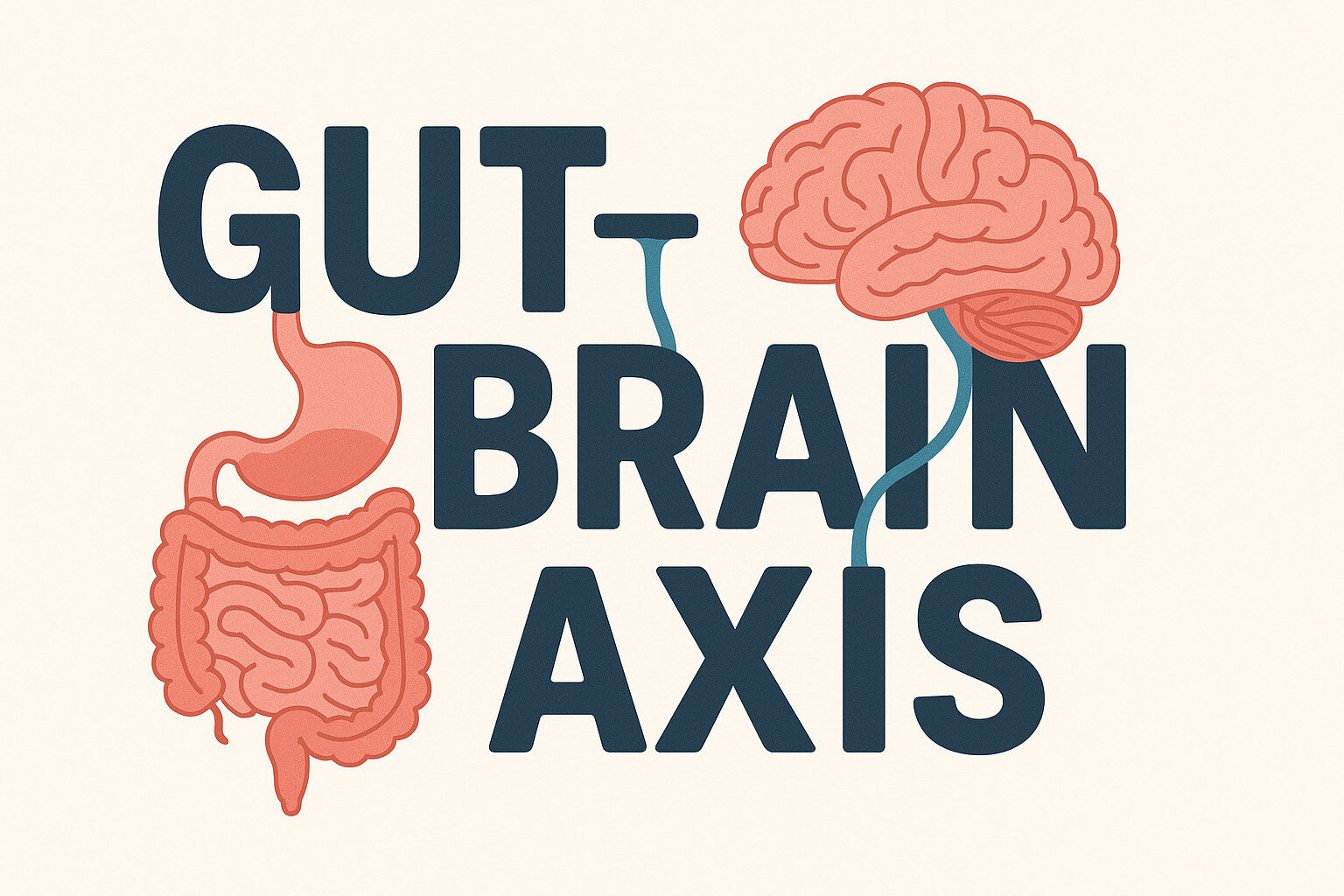When you have a ”gut feeling”, you’re not imagining things, your nervous system is actually listening and trying to get your attention. One of the best ways your gut talks to your brain is through the vagus nerve which is a long, wandering nerve that connects your digestive tract to your brainstem. But what most people don’t realize is that around 80% of vagus nerve fibers are afferent, meaning they carry signals from the gut up to the brain, not the other way around!
When Vagal Signaling Is Working Well…
In a healthy gut, vagal afferent fibers, which are the sensory fibers that carry information from the gut to the brain, are stimulated by a wide array of beneficial signals. These include gut-derived hormones (GLP-1 and PYY), short-chain fatty acids (SCFAs) such as butyrate produced by fiber-fermenting bacteria, and neurotransmitters like serotonin and GABA, which are synthesized and or kept in balance by both gut cells and beneficial bacteria. When these “positive” signals activate the vagus nerve, they help regulate digestion, reduce inflammation, and promote a calm, balanced state in the brain. This healthy vagal signaling helps modulate mood, stress response, appetite, and pain sensitivity which creates a feedback loop that reinforces both mental clarity and gastrointestinal comfort. It’s one of the key ways the gut microbiome supports emotional well-being without any conscious awareness.
Here are a few examples:
- Serotonin (from gastrointestinal enterochromaffin cells) binds to 5-HT3 receptors and tells your brain when you’ve eaten (satiety), calms inflammation, and reduces pain.
- Butyrate and other Short Chain Fatty Acids (SCFAs), made by good bacteria from eating dietary fiber, activate receptors that lowers oxidative stress, reduces inflammation which promotes mood, and protects brain function.
- Probiotics like Lactobacillus rhamnosus have been shown to stimulate the vagus nerve and reduce anxiety, without any drugs involved. It upregulates GABA receptors in the amygdala and the hippocampus so it enhances inhibitory control over circuits that generate anxiety and fear responses. The hippocampus plays a key role in memory and emotional learning, while the prefrontal cortex is responsible for executive functions, impulse control, and interpreting emotional experiences. When GABA-B receptor expression increases in these regions, it strengthens inhibitory signaling in the brain, which helps calm excessive neural activity. This enhanced inhibitory tone reduces stress-related rumination, emotional reactivity, and overthinking. The result is greater mood stability, improved emotional regulation, and enhanced resilience to stress.
To sum it up, this kind of vagal input from a healthy gut improves the following:
- Mood regulation, anxiety reduction
- Satiety and digestion
- Pain tolerance, reduces inflammation
- Stress resilience
It’s your body’s natural feedback loop for calm and balance.
When Vagal Signals Go Wrong
Not all signals to the brain are good ones. When the gut becomes inflamed, dysbiotic, or overwhelmed by stress-related neurochemicals like cortisol and norepinephrine, the messages traveling up the vagus nerve can signal distress rather than harmony. In these cases, vagal afferents relay information about immune activation, microbial imbalance, and mucosal disruption to the brainstem, which then influences higher brain centers involved in emotion, pain perception, and autonomic regulation. This disrupted communication loop can contribute to a range of symptoms such as:
- Visceral hypersensitivity (like in IBS), which means even if there’s no structural damage or inflammation, the body perceives normal gut sensations as painful, urgent, or threatening.
- Mood disorders like anxiety or depression
- Fatigue, brain fog, or even immune dysregulation (autoimmune, colitis, mast cell activation)
For example:
- Too much serotonin in the gut (from dysbiosis or inflammation) can lead to cramping, diarrhea, and nervous system overload.
- Lipopolysaccharides (LPS) which are toxins from bad gut bacteria that can trigger the immune system to send alarm signals up the vagus, reinforcing stress and low mood.
- Cytokines like IL-6 and TNF-α, produced during gut inflammation, can decrease vagal tone/calmness and even depress brain function.
So It Matters to Have a Healthy Microbiome .. so we can tell our brain that all is well.
A healthy vagus nerve creates a clear, calm channel of communication between your gut and brain. But when the gut is out of balance, that same nerve can carry distress signals that impact mood, focus, and energy.
The good news? You can tone and balance vagus nerve signaling naturally—with fiber, fermented foods, calming breathwork, and by supporting a healthy microbiome.


